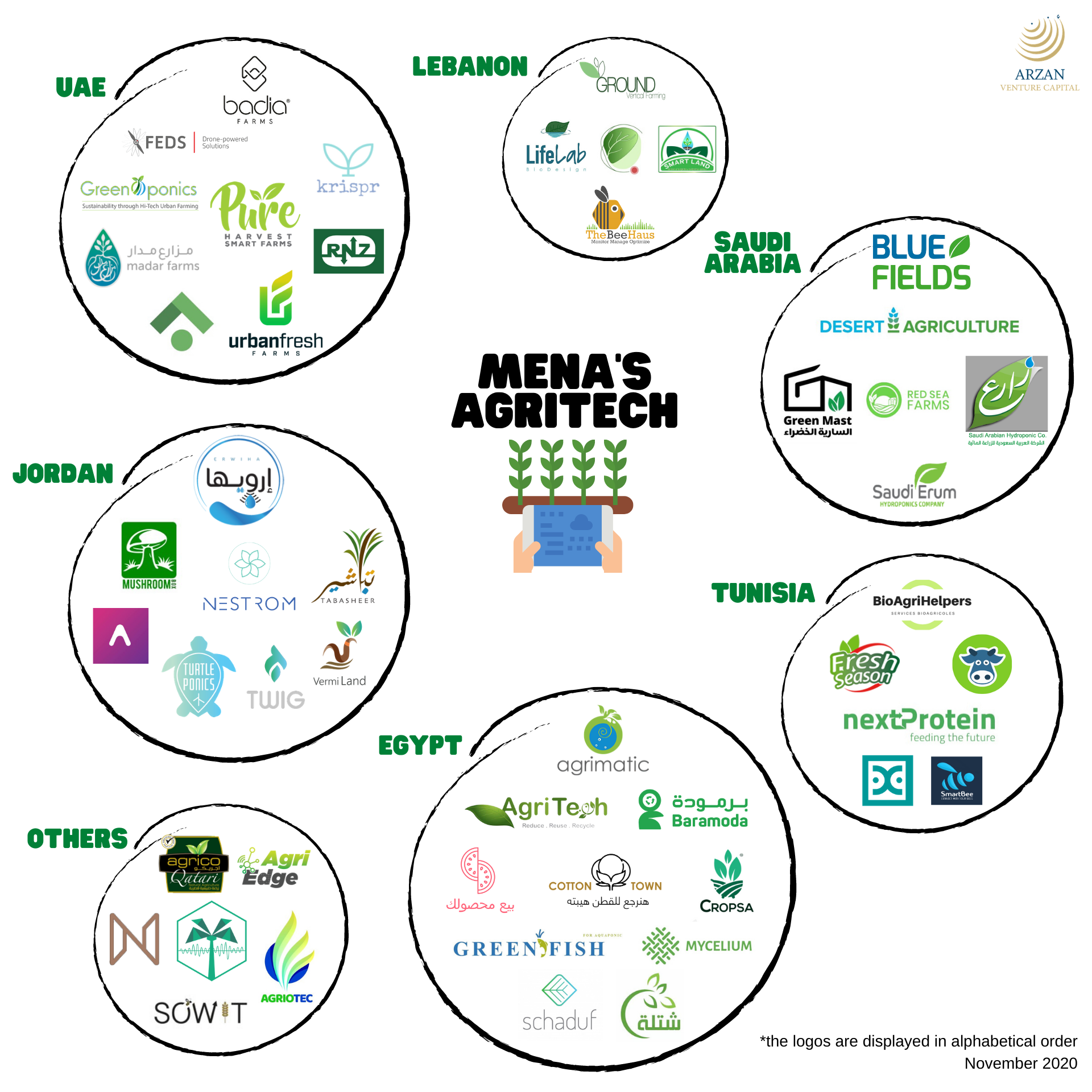
Popping bubbles in 2021
At last, 2020 is at its close (sigh). There are many ways to describe the last 12 months but let’s stay diplomatic—they were very eventful.
On the bright side, all that happens to us—good or bad—is an opportunity to learn and grow. We just have to grasp it. And that’s no cliché.
We @ArzanVC got together to detect the weak points of the startup & VC ecosystem in the Middle East. We present them to you as bubbles
Bubbles of overvalued rounds and entrepreneurial hearts can be dangerous
2020 served us many startup surprises with new winners as well as losers. Some companies found out they had been operating in a bubble that was meant to burst either way—be it for a failing product-market-fit or bad unit economics.
Well, it’s no secret that the startup ecosystem in the Middle East faces its own bubbles. And these bubbles are very much related to the local economic (and so political as well as social) realities of the region. So this is no critique—our bubbles have been created causally; by the law of cause and effect.
First: easy funding money. There is too much of the cake available for startups to grab. While those of you who just said “Hold on, that’s a good thing, isn’t it!” – no, it’s not. There are way too many funding options in the Middle East and sourcing money is the least problem for the local startups. National funds, business funding, family funding… —you name it. However, the kind of funding from developmental investors often comes with restrictions (i.e. invest in a specific country), which may inevitably damage the startups as well as investors. There is also an imbalance between the amounts of funding and the (limited) availability of startups. And this is where our major bubbles mark the beginning of their life.

…. bubbles of unrealistically large valuations.
The region’s startup pool is still not that big so there’s high competition among the startups and hence the valuations they seek are higher. Yet the traction doesn’t always meet the next round valuations as promised. And that’s a problem. Overvalued rounds are becoming a forte of many startups in the Gulf area.
Our principal Eyad believes that the region’s structural changes are long overdue. For example, while KSA has been steadily focused on enabling private enterprise (and startups) over the past 3 years, Kuwait lags behind and this is a structural disadvantage that Kuwait needs to better address at the policy level. The overvalued rounds don’t necessarily mirror some of these structural challenges.
Meanwhile, our analyst Mohanad says that investors are to be blamed for this situation and they should start caring more about the numbers.
It is our job as investors to do our proper and reasonable due diligence, right?

Well, take an example of Kuwait, where the investors’ actions turn troublesome sometimes. The common investors here are family offices who see and value startups as a private equity opportunity rather than venture capital. And that’s not doing any good to the ecosystem. But beware, there are also other kinds of bubbles around us.
…. bubbles of giving all your heart into your startup.
In theory, the order of things is: idea, …….. funding. In our region, it’s sometimes the other way around. Our analyst Asia reminds that certain business ideas get defended no matter if they’re worth it or not (note: being stubborn is not always a bad trait.) That’s when a proper personal market research is preferred over outsourcing feasibility studies to third parties (which is usually very pricey, too). Also, some founders have great networks (while some still don’t network at all), but we shouldn’t forget that our networks not necessarily translate to actual users. Friends and family are not the only users you’d like to have on board in the long-run.
There are also those among us that prefer to remain part-time entrepreneurs with another full-time job. Perhaps they are not incentivized to shift to full-time jobs in their own startups because they think it’s simply not worth it for them. Perhaps they don’t want to lose the high package they’re receiving in the full-time job. However, this prevents them from fully dedicating to their own business, which could suggest they’re not willing to take much risk… Well, if you want to be an entrepreneur, you must give your heart in. All of it. And take good care of your numbers before they turn into bubbles.
|
TL;DR (too long; didn’t read)
Bubbles of overvalued rounds are increasingly more common around the Middle East, and especially the Gulf area. Their origins lay in too many available funding options and a still-quite-limited startup pool. Structural policy changes as well as reasonable due diligence on behalf of investors are some of the ways forward. The region also faces bubbles arising from the lack of knowledge and/or will in ensuring that startups are run and grown to their maximum potential.
|
Family Postcard
$120,000 for scholarships
In 2020, Mejuripledged $120,000 to scholarships for black women and black non-binary people though the Mejuri Empowerment Fund.
FlexxPay in Bahrain
FlexxPay signed a cooperation agreement with Bahrain’s Al Salam Bank. This first-of-its-kind agreement will give employees and pensioners access to a portion of their earned income whenever they want.
50% off
Corporate clients of Riyad Bank can now receive 50% off on their subscription with Qoyod.
Where did you shop on Black Friday?
prepared a list of the most popular brands this season and the traction around them on social media in the Middle East.
and
🎙️
MUNCH:ON’s Dana Baki was interviewed by Entrepreneur Middle East.
Latest Jobs @ArzanVC Family
-
VIP Business Development Executive at The Luxury Closet (Abu Dhabi / Kuwait / Riyadh)
-
Head of Operations at TruKKer (Cairo)
-
Product Manager KSA at MUNCH:ON (Saudi Arabia)
-
Android Developer at POSRocket (Amman)
-
Multimedia Designer at Tamatem(Amman)

See you next year!
Hasan
![]()
![]()
![]()
![]()
![]()
![]() Received this from a kind friend? You can subscribe to our newsletter too.
Received this from a kind friend? You can subscribe to our newsletter too.
Copyright © 2020 ArzanVC, All rights reserved.
Want to change how you receive these emails?
You can update your preferences or unsubscribe from this list
































